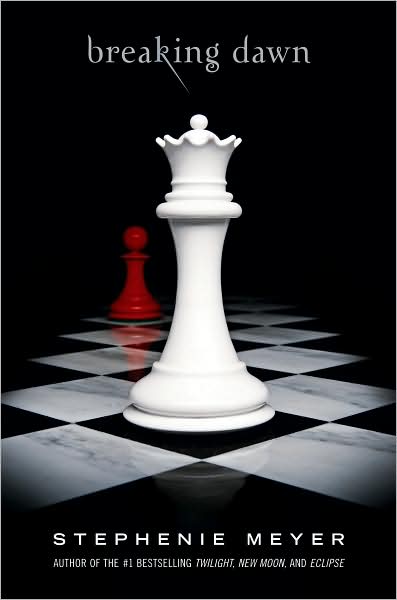
Note: This blog post contains spoilers on the Twilight series, including Breaking Dawn.
I consider myself a fan of the Twilight series, but I always struggled with loving a series that romanticized what in many ways is an unhealthy relationship.
In Twilight by Stephenie Meyer, Bella is human girl who moves to Forks, Washington, and falls in love with a vampire named Edward Cullen. In the first book, they fall hard for each other, but they are still testing each other, they tease each other, flirt playfully, and Bella still spends time with her human friends. They seemed to have the perfect relationship and I found myself joining the teenage girls crushing on the fictional Edward.
In the sequel, New Moon, Edward leaves for a long period in the book because he wants her to have a better life. She completely falls apart. It's described as something more than love. They need each other, they feel whole when they are together. What girl doesn't want to imagine herself with a guy who would do anything for her? Who only sees her? Yet, Edward also thirsts for her blood. He has to balance loving her, with the fact that he wants to kill her. He makes up for this by protecting her from everything. He never wants her out of her sight.
In Eclipse, he forbids her to see her best friend, Jacob Black. He goes so far as to stop her car from working and have his sister kidnap her (he has an unfair advantage, he can read minds and his sister can see the future). There is something wrong with this picture. It's not healthy for a teenager to spend all her time with her boyfriend and for him to demand that she stop seeing her other friends. He lightens up later in the book, but because Edward is seen as the perfect boyfriend, young adults might think this is acceptable and might mistake their own controlling boyfriends for just being protective and loving.
None of these books were particularly well written, but I was quick to overlook the faults because I was so invested in the story. I eagerly went to a midnight Breaking Dawn party, participating in a heated Team Edward/Team Jacob debate (I was one of the few on Team Jacob, but my reasons for that would be another post entirely). After reading the much-anticipated Breaking Dawn, though, I can no longer overlook the fact that Stephenie Meyer is a lazy writer.
It's not very fair to compare Meyer to J.K. Rowling, but since they both have such die-hard fans, comparisons are inevitable. I never thought Rowling was a great writer either, but she took her time with the series, whereas Meyer seems to be tackling a lot in a short amount of time--the Twilight series, as well as her first adult novel, The Host, and other projects she is apparently working on. As a fairly new writer who has said in interviews that she wants to improve as a writer, she should slow down. I guess it's a little too late for this series though.
I will admit that I was shocked about Bella's pregnancy, especially since I wrongly misinterpreted the fact that vampires could not have babies to assume that it also meant they could not have babies with humans. After that, however, the book went in far too predictable and easy directions. I was hoping that Bella would not become a vampire, but of course she did. At the core of the first three books is the story of a beautiful vampire in love with a clumsy ordinary girl. If she's also a vampire, it's just two vampires in love, and that's pretty boring. Plus, Bella got to be a vampire and didn't end up having to make any sacrifices. What's that about? She got to keep a relationship with her father. She got to stay best friends with Jacob and will eventually have him as a son-in-law (anyone else creeped out by the Oedipal implications in this, let alone the fact that he imprinted on a baby). Everyone wins, except the reader.
A novel has to have conflict, but the only conflicts in this book were forced as when Bella was sure that she and Edward were going to die and that Alice had actually left them. Plot devices like this only work if you believe them. I suspected early on that Stephenie Meyer was a happy ending writer and it was obvious throughout the book that nobody would die and everyone would be paired off (in some cases with no development as with Charlie and Sue). There was no suspense in the final confrontation with the Volturi and everything leading up to it.
The main reason I was quick to forgive the faults of the first three books was my love for the characters, who felt three-dimensional. In this book, many characters were barely in it (Alice, Emmett), and the others felt like their personalities were missing. Edward was always there, but not as much of a presence as in the other books. The only character who was consistent with the other books was Jacob and the chapters from his perspective were the most enjoyable to read.
I've been reading reactions to the book online and while many were unhappy, there are many "Twihards" or "Twilighters" who say that all the books are perfect. They call Stephenie Meyer a "genius." As I said before, I love it when books get teenagers so excited that they will wait in line at midnight, but I would hope that they would realize it's OK to love a book and be critical. They should want to engage in the books, think about and discuss them. I'm not saying that because I thought Breaking Dawn was bad, that everyone should, but I hope that for those that did love the book, they think about why they did.








